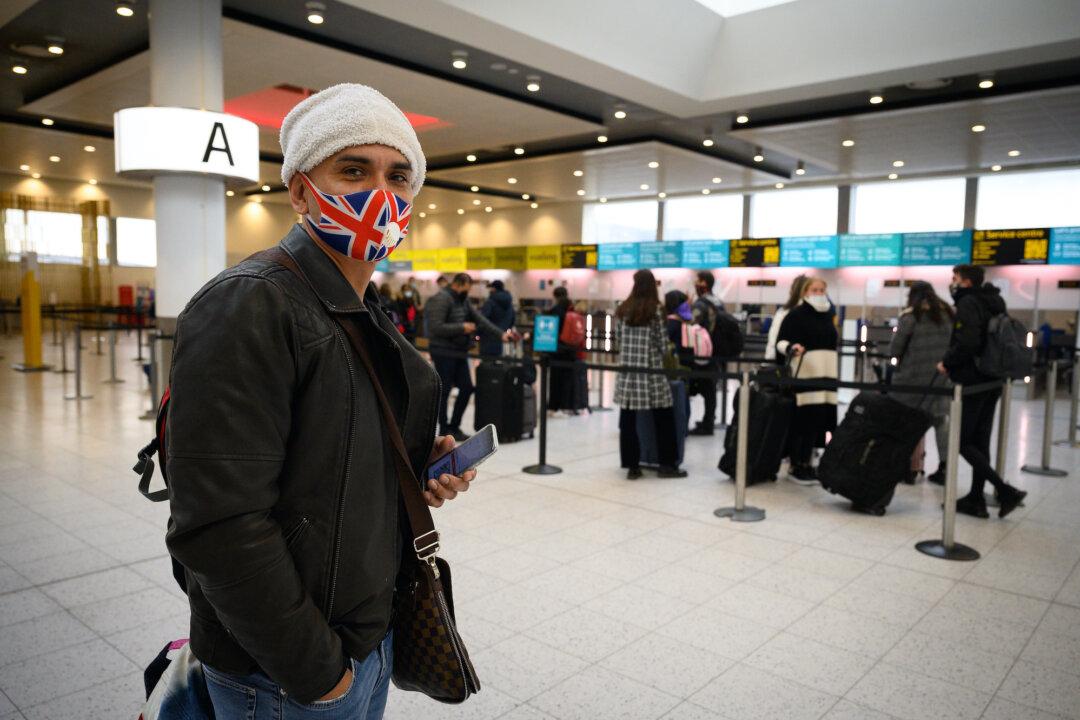From tomorrow, the UK is banning travel from all South American countries, hoping to stop a new variant of the CCP virus that has emerged in Brazil.
Announcing the new restrictions, Transport Secretary Grant Shapps said that they do not apply to British or Irish Nationals or people with UK residency rights.





